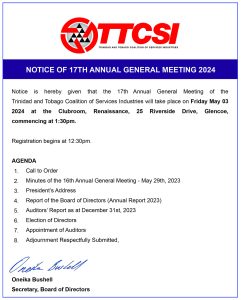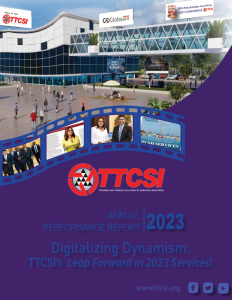(Geneva, Switzerland) The Global Services Coalition today insisted that services must be seen as one of the three key market access pillars of the Doha Round of global trade talks, along with agriculture and non-agricultural market access (NAMA). The Coalition emphasized that, at this critical juncture in the negotiations, when real movement may be within reach, it is indispensable that the three pillars are inextricably linked.
“Services, along with agriculture and NAMA, have been part of the Single Undertaking from the outset of the Doha Round,” said delegation leader Sergio Marchi, Chairman of the Canadian Services Coalition and former Canadian Ambassador to the WTO. "It is vital that WTO members accept the close linkage among the three pillars, and understand that an ambitious outcome in services is necessary in order for the Coalition and its members to support the conclusion of the Round.”
The Coalition also expressed strong support for the "signalling exercise" – an ongoing process of bilateral meetings and discussions among senior officials and ministers – to encourage key countries to improve their services offers so as to demonstrate the potential benefits available from concessions across all three pillars of the Round. In its meetings in Geneva, the Coalition urged that WTO Members use the signalling exercise, and the Ministerial level Signalling Conference that will follow it, to make clear that they are ready to make significant improvements in their services offers.
The Coalition has said repeatedly that such improvements should include both the binding of existing levels of openness, and new liberalization. The Coalition welcomed the decision of WTO Director General Pascal Lamy to convene, chair and report on the Signalling Conference on services. This conference will have the same level of political importance as the ministerial green rooms meeting on Agriculture and NAMA , and the unambiguous commitment of the Director General will be a tremendous asset for its success.
The Coalition also called for a services text, to provide political guidance on the level of ambition for services. However, the Coalition warned that the Signalling Conference and the text were not ends in themselves, but simply means by which to work toward the objective of substantial services offers, with the maximum number of bindings and new offers in as many of the key service sectors as possible.
"That is the ultimate goal," said Marchi. "We hope that the Signalling Conference and the services text will reaffirm that goal clearly, so that WTO members can quickly do the necessary work to produce commercially significant new services offers. Whatever their stage of development, their economies will benefit from ready access to efficient modern services."
The Global Services Coalition has been, and continues to be, a staunch supporter of the Doha Round. A successful conclusion to the Round, especially at this period of economic uncertainty, will send a very positive signal to the the global economy. By reducing trade barriers to services, goods, and agriculture, the Round will promote global economic growth, and will demonstrate that WTO members are determined to shun protectionism. The Global Services Coalition is comprised of the service industry associations of Australia, Brazil, Canada, the Caribbean region, the EU, Hong Kong, Japan, New Zealand, Taiwan, and the United States.





